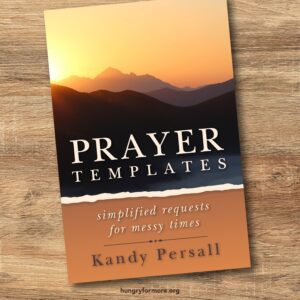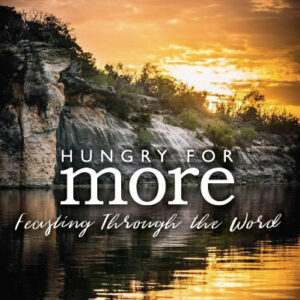
The Flooding
Take an empty glass. Set it in the sink, under the tap. Now turn on the water.
No matter how much you open the spigot, the glass will eventually brim over. Leave the water running and plug the drain. What will happen? The sink will begin to fill from the overflow. If left long enough, the level of water will exceed the top of the glass, submerging it and anything else left in the basin. Wait an additional time, and the sink will flood over.
This simple illustration visualizes the Greek verb plēroō: “to make full, to fill up, equivalent to ‘to flood.‘” But instead of describing a torrent that damages, the New Testament often uses plēroō to describe how God releases one of our greatest desires: joy.
Allow this truth to wash you. God wants to flood you with an exceeding cheerfulness of calm delight. Jesus tells us this specifically in His last address. “These things have I spoken unto you, that My joy might remain in you, and that your joy might be full” (plēroō – John 15:11). “Until now,” He assures, “You have asked for nothing in My name; ask, and you will receive, so that your joy may be” flooded and spilling over (John 16:24).
Evidently, what Jesus prays happens. At Pentecost, not only did the Spirit affect every individual, but the experience is described as one of great joy (Acts 2:2, 28). Even in great persecution, “The disciples were filled with (plēroō) joy, and with the Holy Spirit” (Acts 13:52).
So how do we attain the filling of this perfect gift, regardless of our situation? Romans 15:13 reveals the secret. “Now may the God of hope fill (plēroō) you with all joy and peace in believing, so that you will abound in hope by the power of the Holy Spirit.”
First and foremost, this flood of joy originates in God, not in ourselves. Seeking joy in our circumstances, children, finances, or future can never yield lasting results. After every Bible Recap, Tara-Leigh Cobble reminds us, “He is where the joy is.”
Secondly, know that the Father of Hope would want His children to be like Him, abounding in joyful and confident expectation. Although pessimism remains a staple of the news and social media, we have a “living hope,” which doesn’t disappoint (1 Peter 1:3; Romans 5:5). Would not the God who expects us to give liberally do so Himself? Joy results from being cascaded with His Spirit (Galatians 5:22)!
Lastly, we have a part in securing the joy. It is found “in believing.” Once again, our Father reminds us of the importance of faith. Since faith is merely relinquishing control, it’s evident that the more we believe, the greater our capacity for joy. Like the simple illustration above, the purity of the fill depends on the emptiness of the glass. When we surrender our own desires and move ourselves by faith underneath the spout, He can’t help but flood us with all joy and peace.
Pray with me:
“Father, I desire You to flood me with joy. I realize joy not only originates in You, You want me to experience what You experience. What specific way can I jettison control to have more room for joy? Bring it to mind and grant me the follow-through to faithe You. In Jesus’ Name, Amen.”
-
Hungry For More: Feasting Through the Word
$12.00 – $15.00 Select options -
Hungry For More: Marital Intimacy
$12.00 – $15.00 Select options






